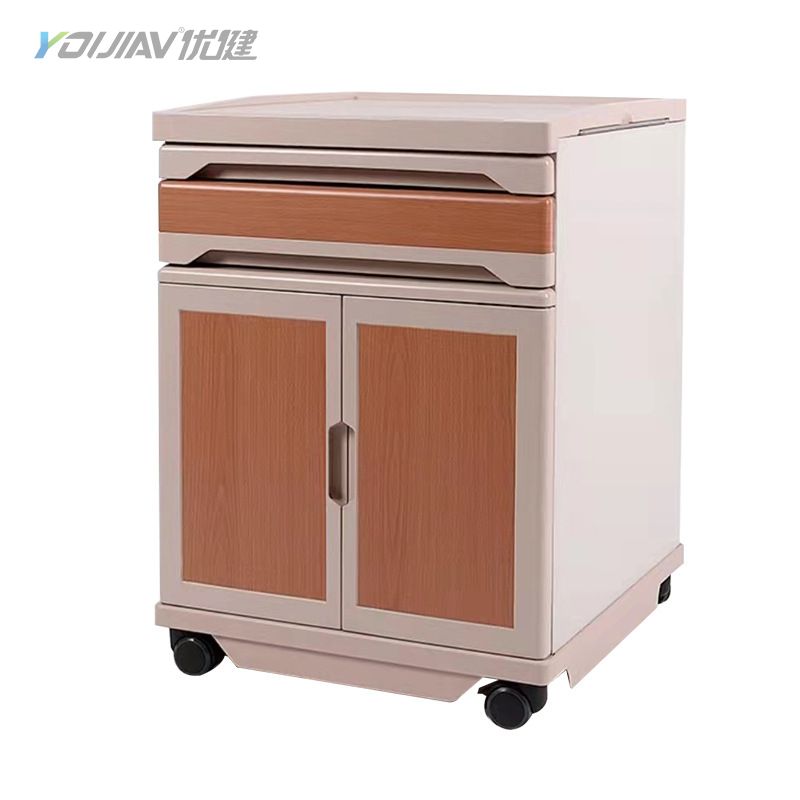What Is the Use of Bedside Cabinets in Hospitals?
Bedside cabinets play a crucial role in hospitals, providing essential storage and functional support for patients, healthcare professionals, and the overall hospital environment. In this article, we will explore the significance of medical bedside cabinets and their various uses in hospitals. From improving patient comfort to enhancing healthcare efficiency, bedside cabinets are indispensable components of modern healthcare facilities.
Enhancing Patient Comfort and Convenience: Hospitals prioritize patient comfort, and bedside cabinets contribute significantly to achieving this goal. These cabinets are strategically placed near patient beds, offering a convenient storage solution for personal belongings, such as books, mobile devices, and personal care items. Patients can easily access their belongings, promoting a sense of independence and familiarity during their hospital stay.
Organized Storage for Medical Supplies: Hospital bedside cabinets serve as storage units for medical supplies, ensuring easy accessibility for healthcare professionals. By having necessary items within arm's reach, healthcare providers can save valuable time and respond promptly to patient needs. Essential supplies like gloves, gauze, and medications can be neatly organized in the cabinet, streamlining the workflow and optimizing patient care.

Supporting Patient Care and Treatment: Bedside cabinets play an integral role in supporting patient care and treatment procedures. They can accommodate medical equipment such as blood pressure monitors, thermometers, and diagnostic tools, allowing healthcare providers to have essential instruments close at hand. This proximity helps facilitate accurate and efficient patient monitoring and treatment administration.
Promoting Infection Control: Infection control is a top priority in hospitals, and bedside cabinets contribute to maintaining a hygienic environment. Cabinets with antimicrobial properties or easy-to-clean surfaces help minimize the risk of pathogen transmission. Additionally, dedicated compartments for waste disposal or hand hygiene products ensure proper disposal and availability of sanitization supplies.
Privacy and Confidentiality: Bedside cabinets provide a designated space for patients to store personal items securely. This privacy promotes confidentiality, safeguarding patients' personal information and belongings. It also creates a sense of ownership and control over their space, contributing to a positive patient experience.
Ergonomic Design and Safety: Medical bedside cabinets are designed with ergonomic considerations to promote safety and ease of use. Rounded edges and non-slip surfaces minimize the risk of accidental injuries, particularly in busy hospital environments. Adjustable shelves and drawers allow for customization according to individual patient needs, enhancing accessibility for patients with limited mobility.
Conclusion: Bedside cabinets in hospitals offer a wide range of benefits, including enhancing patient comfort, supporting healthcare professionals, and promoting infection control. These cabinets play a pivotal role in streamlining patient care, providing organized storage for medical supplies, and facilitating efficient treatment procedures. With their ergonomic design and emphasis on privacy and confidentiality, bedside cabinets contribute significantly to creating a conducive healing environment. By understanding the importance of bedside cabinets in hospitals, we can appreciate their essential role in ensuring optimal healthcare delivery.


Comments
0